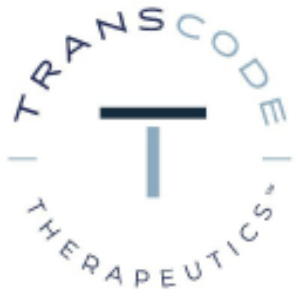TransCode Therapeutics and Akribion Genomics Report Progress Developing CRISPR-Derived Technology for Cancer Treatment
BOSTON, March 11, 2024 (GLOBE NEWSWIRE) -- TransCode Therapeutics, Inc. (NASDAQ: RNAZ), the RNA oncology company committed to more effectively treating cancer using RNA therapeutics, reported positive proof-of-concept laboratory studies in human cells, advancing its strategic partnership with Akribion Genomics.
Akribion Genomics, a German-based biotechnology start-up, is focused on a CRISPR-derived molecular complex for cancer treatment. TransCode and Akribion are collaborating to develop a technology that combines Akribion’s cell-killing G-dase E, a Class 2 CRISPR nuclease, with TransCode's TTX nucleic acid delivery platform. G-dase E has shown encouraging in vitro results in cells but requires an effective delivery vehicle, such as TTX, to reach intended targets in the body.
Proof-of-concept studies to date suggest that Akribion’s G-dase E ribonucleoprotein complexes could be conjugated to TransCode’s TTX delivery platform, suggesting that the drug candidate could be formulated as intended. These studies also indicate that TTX-G-dase E ribonucleoprotein complexes could be taken up by cancer cells, inducing cancer cell death.
Akribion’s Co-Chief Executive Officer, Lukas Linnig, commented, “We are excited about deepening our relationship with TransCode. Together we have now shown that we can successfully synthesize constructs combining TransCode’s TTX platform and our G-dase E nuclease, demonstrating initial laboratory evidence of efficacy in cancer cells. We look forward to continuing to pursue a combined technology for developing highly targeted drugs to treat cancer.”
Zdravka Medarova, PhD, TransCode Chief Scientific Officer, added, “Establishing proof-of- concept is a critical step in advancing our collaboration. We are fully committed to continuing our joint efforts to developing this technology.”
About TransCode Therapeutics
TransCode is a clinical-stage oncology company focused on treating metastatic disease. The company is committed to defeating cancer through the intelligent design and effective delivery of RNA therapeutics based on its proprietary TTX nanoparticle platform. The company’s lead therapeutic candidate, TTX-MC138, is focused on treating metastatic tumors which overexpress microRNA-10b, a unique, well-documented biomarker of metastasis. In addition, TransCode is developing a portfolio of first-in-class RNA therapeutic candidates designed to overcome the challenges of RNA delivery and thus unlock therapeutic access to a variety of novel genetic targets that could be relevant to treating a variety of cancers.
Forward-Looking Statements
This release contains “forward-looking statements” within the meaning of the Private Securities Litigation Reform Act of 1995, including, without limitation, statements concerning the therapeutic potential of TransCode’s development candidates and its TTX delivery platform generally, either on a stand-alone basis or in combination with the development candidates and technologies of third parties, and statements concerning TransCode’s collaboration agreement with Akribion Genomics. No assurance can be given as to whether other collaboration agreements will be consummated with Akribion or any other parties or as to the ultimate success of any collaboration agreement, including the collaboration agreement with Akribion Genomics. Any forward-looking statements in this press release are based on management’s current expectations of future events and are subject to a number of risks and uncertainties that could cause actual results to differ materially and adversely from those set forth in or implied by such forward-looking statements. These risks and uncertainties include, but are not limited to: the risk associated with drug discovery and development; the risk that the results of our clinical trials will not be consistent with our pre-clinical studies or expectations or with preceding clinical trials; risks associated with the timing and outcome of TransCode’s planned regulatory submissions; risks associated with TransCode’s conduct of clinical trials; risks associated with obtaining, maintaining and protecting intellectual property; risks associated with TransCode’s ability to enforce its patents against infringers and defend its patent portfolio against challenges from third parties; risks of competition from other companies developing products for similar uses; risks associated with TransCode’s financial condition and its need to obtain additional funding to support its business activities, including TransCode’s ability to continue as a going concern; risks associated with TransCode’s dependence on third parties; and risks associated with geopolitical events and pandemics, including the COVID-19 coronavirus. For a discussion of these and other risks and uncertainties, and other important factors, any of which could cause TransCode’s actual results to differ from those contained in or implied by the forward-looking statements, see the section entitled “Risk Factors” in TransCode’s Annual Report on Form 10-K for the year ended December 31, 2022, as well as discussions of potential risks, uncertainties and other important factors in any subsequent TransCode filings with the Securities and Exchange Commission. All information in this press release is as of the date of the release; TransCode undertakes no duty to update this information unless required by law.
For more information, please contact:
TransCode Therapeutics, Inc.
Tania Montgomery-Hammon, Business Development
tania.montgomery@transcodetherapeutics.com









